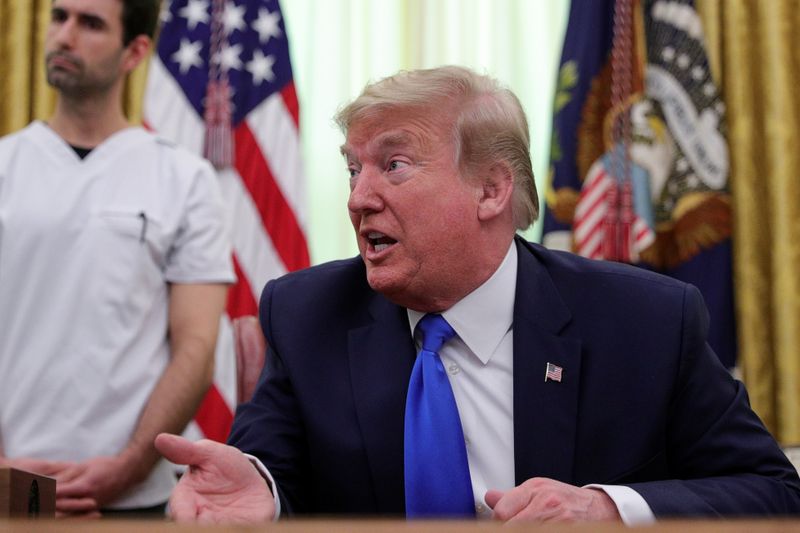By Patricia Zengerle
WASHINGTON (Reuters) - The U.S. Senate failed on Thursday to override President Donald Trump's veto of a resolution that would have reined in his ability to wage war against Iran by requiring him to obtain congressional authorization for military action.
The vote was 49-44 in favor of the resolution, but that fell short of the two-thirds majority, or 67 votes, needed to override a veto in the 100-member Senate.
The resolution, led by Democratic Senator Tim Kaine, had passed the Republican-led Senate and Democratic-led House of Representatives earlier this year with support from Democrats and Republicans despite Trump's opposition.
Trump vetoed it on Wednesday, calling it "very insulting" and accusing Democrats of pursuing the matter for political reasons, although the measure was introduced by some of Trump's fellow Republicans, as well as Democrats.
Kaine responded by saying that Congress is doing its job by trying to assert its authority to weigh in on the use of military force.
"It is not a partisan effort. It was bipartisan from the very beginning," Kaine told reporters on a conference call before the vote.
"It was introduced to stop a rush to an unnecessary war," he said.
Trump also contended that, as commander in chief he needed to retain broad authority for military action against Iran. Trump withdrew the United States in 2018 from the international nuclear agreement with the Islamic Republic reached under his Democratic predecessor, Barack Obama, and has been waging a "maximum pressure" campaign against the Tehran government.
The war powers resolution was introduced weeks after Trump ordered a strike in January that killed top Iranian military commander Qassem Soleimani at Baghdad's airport. The strike in Iraq raised fears of renewed conflict in the Middle East and frustrated members of Congress from both parties who said they were not sufficiently briefed on the decision.
It was the seventh veto of Trump's three-year-long presidency. None has been overridden. Trump's fellow Republicans, who hold a 53 to 47-seat majority in the Senate, rarely break with the president.
The measure would require Trump to remove U.S. troops engaged in hostilities against Iran unless Congress declares war or passes a specific authorization for the use of military force.

It was the latest in a series of recent efforts by lawmakers from both parties - during Obama's presidency as well as under Trump - to wrest back Congress' constitutional right to declare war.